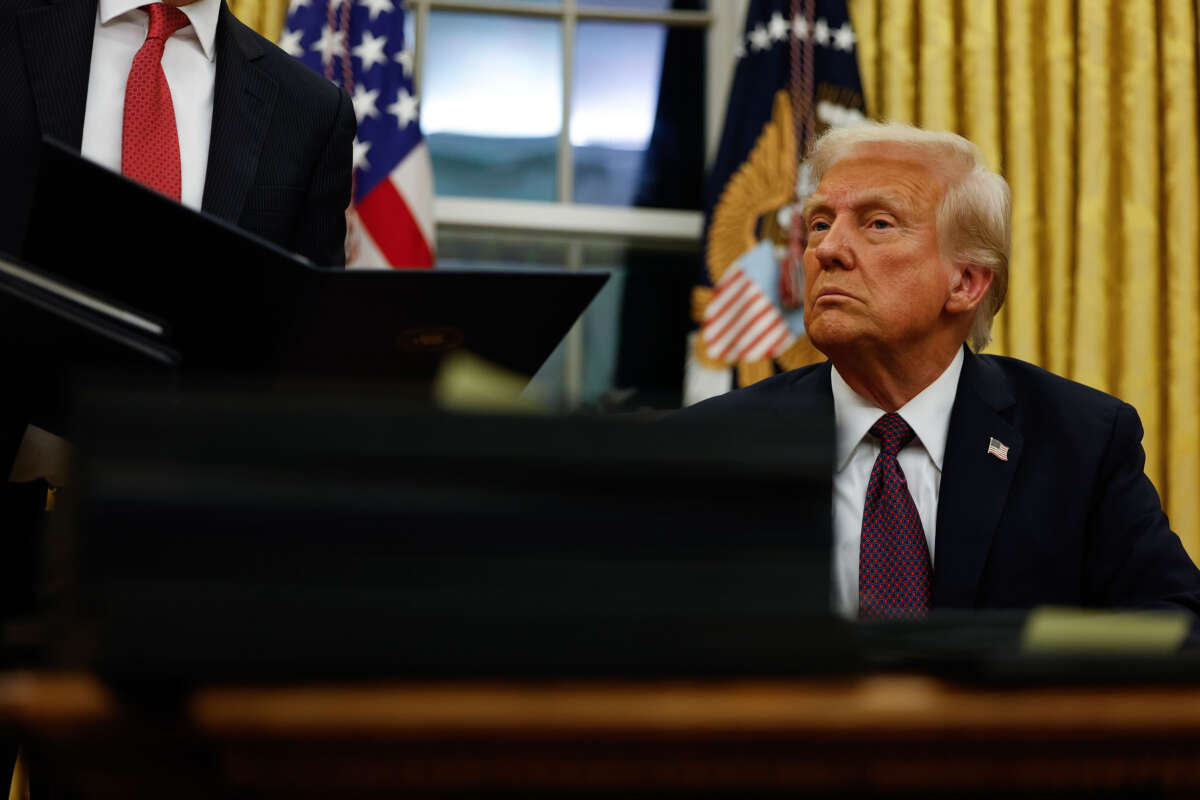On Monday, President Donald Trump issued a multitude of executive orders, including a proclamation “restoring the death penalty” by ending the moratorium on federal executions under former President Joe Biden.
Within his order, Trump called for the use of capital punishment across the U.S. to be expanded, citing the false right-wing talking point that the death penalty is “an essential tool for deterring” crime, a claim that has been long debunked.
There is no meaningful evidence demonstrating that the death penalty deters crimes, and some research has shown that states where the death penalty has been abolished actually have lower murder rates than states that still employ capital punishment.
Notably, the editorial board for Scientific American called for the practice to be completely abolished early last year, citing the many innocent people who have been executed and the fact that the death penalty is disproportionately applied against people of color.
“There is no ethical, scientifically supported, medically acceptable or morally justifiable way to carry it out,” the board stated.
Trump’s executive order on the death penalty also claims that “only capital punishment can bring justice” for victims of heinous crimes and/or their families. However, many victims’ families say that they do not feel a sense of justice after an execution is carried out, and some studies suggest that there are better psychological and even health outcomes for families of victims in states without the death penalty versus states that still have it.
Trump’s order also indicated that his Justice Department may seek to expand the use of the death penalty, so that it can apply to crimes beyond murder. The directive orders the U.S. attorney general to “pursue the death penalty for all crimes of a severity demanding its use.”
The order also calls for the attorney general to “pursue Federal jurisdiction” in order to seek the death penalty in state and local venues when it comes to crimes committed by immigrants and/or involving the killing of law enforcement.
Abraham Bonowitz, executive director of Death Penalty Action, decried the executive order but noted that it was unsurprising, given that Trump “articulated his plan to drastically increase executions” during the 2024 presidential race.
Bonowitz also condemned Trump’s focus on immigrants and crimes against law enforcement, describing it as “unnecessary bluster” on the president’s part, since capital punishment is already utilized in those instances.
He then faulted Biden for not delivering on his campaign promise to end the death penalty in the U.S., noting that Trump would likely pick up from where he left off when he exited office in 2024, when he fast-tracked the execution of more than a dozen people in the final six months of his presidency.
“While expressing both his personal opposition to the death penalty and his desire to maintain the moratorium on executions he imposed in 2021, Biden has nevertheless primed the pump for Donald Trump to resume his execution spree,” Bonowitz said.
Polling shows that support for the death penalty is diminishing within the U.S. While a recent Gallup poll showed that 53 percent of Americans support capital punishment, that number is among the lowest support polled by the agency over the past several decades. A separate Gallup poll from last fall showed that most Americans believe that the death penalty is implemented unfairly, with 50 percent of respondents expressing that view.
4 Days Left: All gifts to Truthout now matched!
From now until the end of the year, all donations to Truthout will be matched dollar for dollar up to $44,000! Thanks to a generous supporter, your one-time gift today will be matched immediately. As well, your monthly donation will be matched for the whole first year, doubling your impact.
We have just 4 days left to raise $44,000 and receive the full match.
This matching gift comes at a critical time. As Trump attempts to silence dissenting voices and oppositional nonprofits, reader support is our best defense against the right-wing agenda.
Help Truthout confront Trump’s fascism in 2026, and have your donation matched now!
